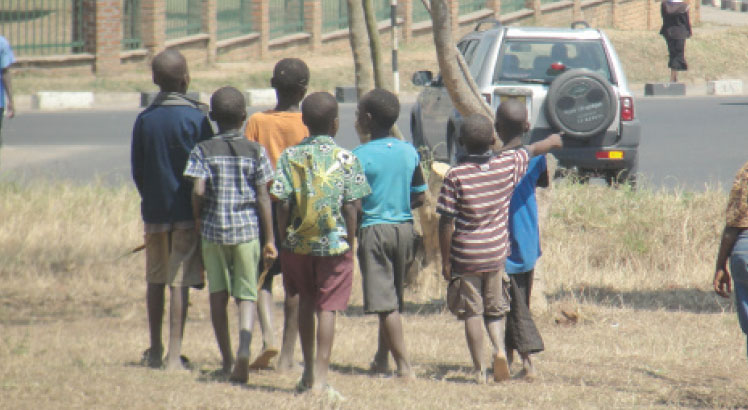Govt reviews adoption laws
Government is reviewing the Adoption of Children Act to accommodate emerging trends locally and internationally, Nation on Sunday has established.
Ministry of Gender, Community Development and Social Welfare Principal Secretary Roselyn Makhumula confirmed this development in an interview last Thursday.
Step Kids Awareness (Steka) founder Godknows Maseko has since welcomed the review, saying the current adoption laws are restrictive. Steka is a foster home for orphans and streets children in Blantyre.
Said Maseko: “Many families have tried for years to adopt children, but failed because the laws are restrictive and favour the rich.”
A Blantyre-based woman, who wanted to adopt a baby boy, agreed the country’s laws are frustrating.

In an interview, the woman, who is married and has three daughters, said she has been trying to adopt a child for over two years, but is yet to succeed due to the rigorous legal processes involved.
She said: “One day, they would ask me to wait. The other day, they would tell me to identify the child by myself, and several other excuses. I find the process unnecessarily restrictive.
“We have many orphans and vulnerable children around and there’re people eager to adopt them. Our authorities should reflect on the adoption laws.”
But in a separate interview, Makhumula argued that the country’s adoption laws are protective, adding globally such laws are tough to as some seek adoption for ill intentions.
She said: “Yes, we receive concerns that the laws are unfavourable. But what we must realise is that we are talking about human beings here, and our priority is to safeguard lives of the infants being adopted.”
The PS said where applicants are illiterate, the social welfare office helps them fill in the forms, adding one may also seek legal support from the Legal Aid Bureau.
Makhumula said ministry records show that from July 2019 to June 2021, her ministry received 43 adoption applications and 32 were successfully processed and children were adopted while five applications are still being processed.
She said six applications are awaiting identification of children based on the applicants’ preferences.
“The ministry only deals with inter-country adoptions and local adoption applications are dealt with at district level through social welfare offices,” said Makhumula.
On his part, Blantyre District social welfare officer Stephano Joseph said in 2020, his office registered one adoption case and this year, two adoption cases have been registered.
But Maseko said many prospective adopters who feel let down by the local system have been consulting the Blantyre-based child-care home for help.
He said: “The system requires one to have a lawyer and go through lengthy court processes. The forms are also in English, which is restrictive. Most give up.”
Maseko said social welfare officials go to applicants’ homes to check if they have a decent house with adequate bedrooms and other necessities.
He said: “They basically look at material things not capabilities and not the love one may have for the children to be adopted. They, however, soften up to foreigners.”
But a Blantyre-based religious leader, who opted for anonymity, said his family successfully adopted a child, adding the process took one year.
He said: “We followed all the legal processes and made a number of follow ups and finally succeeded.”
According to the Adoption of the Children Act, applicants are required to state their income, wealth, businesses and any land they may own.
The Subsidiary Legislation, the Adoption of Children (Subordinate courts) Rules, states that it shall be the duty of the guardian, described as the person appointed by the court to oversee the adoption, to investigate as fully as possible all circumstances of the infant and the applicant.
The law also requires the guardian to establish what insurance, if any, has been effected on the life of the infant.
Reads the law in part: “The magistrate may make such orders as to costs as he shall think fit, and may direct that all the costs of a petition under the Act be borne and paid by the petitioner.”
Malawi has over one million orphans and 20 percent of its households look after orphans and vulnerable children, according to a USAid report.





